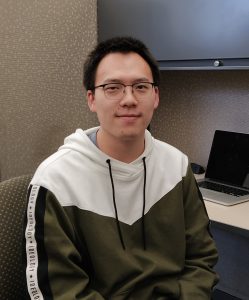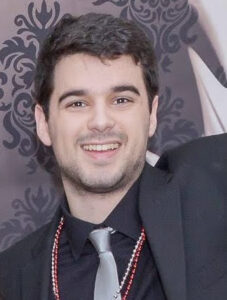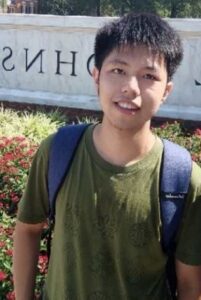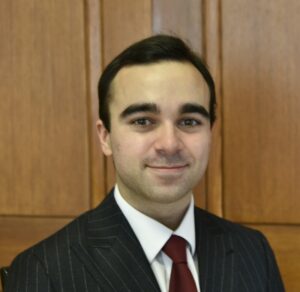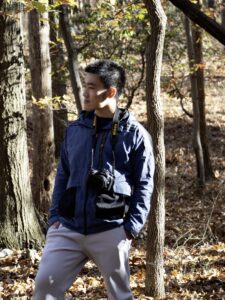Our Team
Principle Investigator
Dr. Rui Ni
Hi! I’m Dr. Ni, an associate professor in the Department of Mechanical Engineering at Johns Hopkins University. My research focuses on the fundamental science of turbulence and multi-phase flows that involve more than one phase (i.e. liquid, solid, or gas). This has applications in next-generation energy systems, environmental engineering, and physiological flows in the human body.
Awards
2018: Endowed Kenneth K. Kuo Early Career Professorship
2017: NSF Faculty Early Career Award (CAREER)
2017: American Chemical Society PRF New Investigator Award
2010: Best Paper Awards in Experimental Fluid Mechanics workshop
Education
Ph.D. in Physics, The Chinese University of Hong Kong (2011)
B.S. in Applied Physics, Hefei University of Technology, China (2006)
Postdoctoral Scholars
Xuan Ruan
Numerical and experimental study on particle-laden flows with electrostatic interactions.
Postdoctoral Scholar, Mechanical Engineering, Johns Hopkins University (2022 – present)
Ph.D. in Energy and Power Engineering, Tsinghua University (2022)
B.S. in Energy and Power Engineering, Tsinghua University (2017)
Shiyong Tan
Experimental technique development, and studies on bubble dispersion, collision, and coalescence in turbulence, particle deposition in high temperature wall boundary flows.
Postdoctoral Scholar, Mechanical Engineering, Johns Hopkins University (2023 – present)
Ph.D. in Mechanical Engineering, Johns Hopkins University (2018 – 2023)
M.S. in Mechanical Engineering, Tsinghua University (2014)
B.S. in Mechanical Engineering, South China University of Technology (2011)
PhD Students
Michael A. Calicchia
My research focuses on uncovering underlying principles of resilient engineering systems by studying analogous biological systems. One such system is a fish school, which efficiently operates in a noisy, turbulent environment and effectively avoids various external threats (predators). Through experiments and data-assimilation, we seek to better understand the hydrodynamic and social interactions that drive a fish’s motion and ultimately develop a data-driven fish schooling model.
Ph.D. Candidate in Mechanical Engineering, Johns Hopkins University (2021 – present)
M.S. in Mechanical Engineering, Manhattan College (2021)
B.S. in Mechanical Engineering, Manhattan College (2020)
2021 Whiting School of Engineering Dean Robert H. Roy Fellowship
Shijie Zhong
My current research spreads on bubble coalescence in turbulence, bubble breakup in turbulence boundary layer, and vortex instability in stratified flow.
Ph.D. Candidate in Mechanical Engineering, Johns Hopkins University (2022 – present)
B.S. in Mechanical Engineering, Shanghai Jiao Tong University (2022)
Samuel Russell
My research focuses on complex particle deposition in wall-bounded turbulence. Multiphase flows with electrophoresis and thermophoresis are my jam. This spans a wide range of applications such as jet engine fouling, lunar dust transport, aerosol medicine mechanics, and much more! I dive deep into experimental methods and novel measurement techniques; also having a passion for teaching and learning.
Ph.D. Candidate in Mechanical Engineering, Johns Hopkins University (2025 – present)
B.S. in Mechanical Engineering, Cum Laude, University of Michigan (2024)
2025 Whiting School of Engineering Dean Robert H. Roy Fellowship
MS Students
Ian Balaratna
My research is focused on observing particle deposition in fluid flow and how these patterns are affected by temperature and electrostatics. This objective is achieved using a high temperature flow testing facility, where airflow and particles are heated to 1100 to 1300°C to simulate conditions in jet engine hot sections. The main application of this work is to assist jet engine manufacturers in understanding particle deposition patterns on turbines, which can lead to premature wear and failure of engines, on a smaller testing scale. Applications in other fields include modeling the effects of pollution deposition on surfaces, airborne debris impacting spacecraft, and pharmaceutical particle behavior.
M.S.E. Student in Mechanical Engineering, Johns Hopkins University (2024 – present)
B.S. in Mechanical Engineering, Schreyer Honors College: Pennsylvania State University (2024)
2024 Johns Hopkins Mechanical Engineering Department Distinguished Master’s Fellow – Accepted
Yuqi Zhang
My research is focused on the triboelectric charging behavior of particles and its critical role in the dynamics of turbulent discharges. This work is accomplished through a combination of experimental measurements and theoretical modeling, designed to replicate the conditions inside thunderstorms and dust storms.
M.S.E. Student in Mechanical Engineering, Johns Hopkins University (2024 – present)
B.S. Major in New Energy Science and Technology, Shanghai University of Electric Power (2020-2024)
B.S. Minor in Laws, East China University of Politic and Laws (2021-2024)
Undergraduate Students

Enzo Larralde
My research is focused on modeling particle deposition in fluid flow for a high-temperature flow testing facility. My work on this project has included designing and testing the particle injection system, installing insulation for the facility, devising an experimental procedure to homogenize the dispersion of alumina oxide particles, and introducing new printed circuit boards to automate operations.
Combined B.S./M.S. in Chemical and Biomolecular Engineering, Johns Hopkins University (exp.2026/2027)
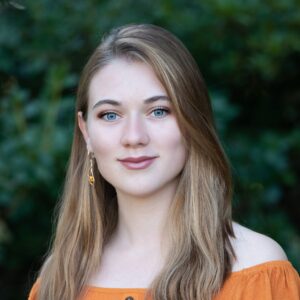
Sophia Phelan
My research explores the effects of particle-laden turbulence on induced electrical discharge, leveraging high-speed cameras to perform Particle Image Velocimetry (PIV) and Particle Tracking Velocimetry (PTV) and get up close and personal with these phenomena at work.
B.S. Mechanical Engineering, Johns Hopkins University (exp. 2026)

Ethan Dunn
My research is oriented around analyzing the behavior of charged particles and electric discharges in turbulent flow. This is done by using different turbulent settings to compare particle concentration, velocity, and charge with discharge frequency and linearity using PIV/PTV data from high-speed recordings. My interests lie in aerospace and astronomical fluid dynamics, and I will be pursuing a PhD after my studies at Hopkins.
Combined B.S./M.S.E. in Mechanical Engineering (exp. 2026/2027)
Alumni
- Miguel X. Diaz-Lopez (Position after: Researcher at APL)
- Xu Xu (Position after: Engineer at Apple)
- Juan Sebastian Rubio (Position after: PostDoc at Sandia National Laboratories)
- Chris Crowley (Position after: Physicist at NIST)
- Yinghe Qi (Position after: Postdoc at ETH Zürich)
- Bharath K.S.
- Tim Berk (Position after: Assistant Professor of Mechanical and Aerospace Engineering, Utah State University)
- Macros Perez (Position after: Mechanical Engineer, GE Research)
- Ashik U.M. Masuk (Position after: Process Engineer at Intel)
- Ashwanth Salibindla (Position after: Process Engineer, Intel)
- Matt Gorman (Position after: Priest of The Dominican Order)
- Samuel Hamermesh (Position after: Associate Systems Engineer, Palski & Associates)
- Victor Shen (Position after: Ph.D. Student in Mechanical Engineering, University of Virginia)
- Dongru Cen (Position after: Mechanical Engineer, Alban Engineering)
- Gökhan Akarslan (Position after: Mechanical Engineer, Türkiye Petrolleri A.O.)
- Chee Hau Teoh (Position after: M.A.S. in Mechanical and Mechatronics Engineering, University of Waterloo)
- Kristov George (Position after: Project Engineer, U.S.A.F.)
- Taehoon Kim
- Zeynep Kaymak
- Morgan Austin
- Chris Vidic
- Noah Corbitt (Position after: Mechanical Engineer, SR Technologies)
- Carl Urbanik
- Alan Huang
- Jack Anderson
- Jay Lawrence (Position after: PhD at Princeton University)
- Alex Ren (Position after: MS at Georgia Tech)
- Chris Hwang
- Bingkai Chen

